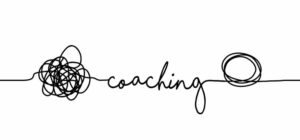In a world filled with distractions and constant demands on our attention, maintaining focus has become a precious commodity. Whether you’re an athlete striving for excellence, a professional navigating a demanding career, or an individual aiming for personal growth, the role of a coach in enhancing focus cannot be overstated. This blog explores the art and science of how coaches help you focus and play a pivotal role in helping individuals channel their concentration, maximize productivity, and achieve peak performance.
Contents
- 1 Can Coaching Help In Sharpening Focus?
- 2 How Do Coaches Help You Focus?
- 2.1 Goal Setting and Clarity
- 2.2 Accountability and Monitoring
- 2.3 Mindfulness and Stress Management
- 2.4 Personalized Strategies
- 2.5 Time Management Skills
- 2.6 Feedback and Reflection
- 2.7 Positive Reinforcement
- 2.8 Cultivating a Growth Mindset
- 2.9 Balancing Intensity with Relaxation
- 2.10 Utilizing Technology Wisely
- 2.11 Effective Communication Skills
- 3 How To Find The Right Coach For Me?
- 4 Conclusion
Can Coaching Help In Sharpening Focus?
 Absolutely, coaching can be a powerful ally in sharpening focus. Coaches bring a unique blend of expertise, guidance, and motivation to the table, assisting individuals in honing their concentration skills and achieving peak performance. Through personalized strategies and tailored approaches, coaches help individuals identify and overcome mental barriers, fostering a resilient mindset that is essential for sustaining focus in the face of challenges.
Absolutely, coaching can be a powerful ally in sharpening focus. Coaches bring a unique blend of expertise, guidance, and motivation to the table, assisting individuals in honing their concentration skills and achieving peak performance. Through personalized strategies and tailored approaches, coaches help individuals identify and overcome mental barriers, fostering a resilient mindset that is essential for sustaining focus in the face of challenges.
Whether in the realm of sports, professional development, or personal growth, coaches work collaboratively with individuals to set clear objectives, align goals with values, and create a roadmap for success. Their role extends beyond mere instruction. In fact, coaches provide a supportive environment where mindfulness and meditation techniques are integrated, time management skills are honed, and technology is leveraged wisely to minimize distractions.
How Do Coaches Help You Focus?
Coaches employ various techniques and strategies to assist individuals in enhancing their focus. Here are several ways in which coaches contribute to sharpening focus:
Goal Setting and Clarity
Coaches assist individuals in articulating their long-term objectives and breaking them down into specific, achievable goals. This process fosters a sense of direction and purpose, providing a clear roadmap for action. By defining milestones and measurable outcomes, individuals can maintain focus by understanding the steps required to reach their ultimate objectives. Coaches guide this process, ensuring that goals are realistic, relevant, and aligned with the individual’s values and aspirations.
Accountability and Monitoring
Coaches establish a structured system of accountability to help individuals stay committed to their goals. Regular check-ins, progress assessments, and goal reviews create a sense of responsibility. Knowing that there is an external source monitoring progress encourages individuals to stay focused and on track. The accountability aspect of coaching fosters a proactive mindset, where individuals take ownership of their actions and are motivated to consistently put in the effort required to achieve their objectives.
Mindfulness and Stress Management
Coaches recognize the impact of stress on focus and productivity. They introduce mindfulness techniques, such as meditation and deep breathing exercises, to help individuals stay present and manage stress effectively. Mindfulness practices enhance self-awareness, allowing individuals to observe their thoughts without becoming overwhelmed. By incorporating these techniques into daily routines, individuals develop the mental resilience necessary to maintain focus in challenging situations.
Personalized Strategies
Coaches understand that a one-size-fits-all approach doesn’t work when it comes to enhancing focus. They take the time to understand each individual’s learning style, preferences, and strengths. By tailoring strategies to align with these unique characteristics, coaches ensure that the coaching process resonates with the individual. This personalized approach increases the effectiveness of the strategies employed, making it more likely that the individual will engage with and benefit from the coaching experience.
Time Management Skills
 Effective time management is a cornerstone of focus. Coaches help individuals prioritize tasks based on importance and urgency, enabling them to allocate time efficiently. Through techniques such as creating to-do lists, setting realistic deadlines, and employing the Eisenhower Matrix, coaches empower individuals to organize their schedules in a way that minimizes distractions and maximizes focused work. By instilling effective time management habits, individuals can direct their attention to tasks that align with their goals, enhancing overall productivity and focus.
Effective time management is a cornerstone of focus. Coaches help individuals prioritize tasks based on importance and urgency, enabling them to allocate time efficiently. Through techniques such as creating to-do lists, setting realistic deadlines, and employing the Eisenhower Matrix, coaches empower individuals to organize their schedules in a way that minimizes distractions and maximizes focused work. By instilling effective time management habits, individuals can direct their attention to tasks that align with their goals, enhancing overall productivity and focus.
Feedback and Reflection
Coaches provide constructive feedback as a vital tool for improvement. Through regular assessments and discussions, individuals gain valuable insights into their performance and areas for development. This feedback loop encourages self-reflection, allowing individuals to identify patterns of behavior and thought that may impact their focus. By understanding strengths and areas for growth, individuals can make informed adjustments to their approach, continually refining their focus and performance over time.
Positive Reinforcement
Coaches emphasize positive reinforcement to celebrate achievements and milestones along the journey. Recognizing and acknowledging progress, no matter how small, helps individuals stay motivated and engaged. Positive reinforcement creates a positive feedback loop, reinforcing the connection between sustained focus and the attainment of goals. This approach fosters a sense of accomplishment and boosts confidence, further fueling the individual’s commitment to maintaining focus in pursuit of their objectives.
Cultivating a Growth Mindset
Coaches foster a growth mindset, encouraging individuals to view challenges as opportunities for learning and development rather than insurmountable obstacles. This mindset shift contributes to increased resilience and adaptability, essential components of maintaining focus in the face of adversity. By reframing setbacks as valuable learning experiences, individuals are more likely to persevere and stay focused on their long-term goals, understanding that improvement and success are ongoing processes.
Balancing Intensity with Relaxation
Coaches emphasize the importance of balancing intense focus with periods of relaxation. Acknowledging that sustained concentration requires moments of rest, coaches guide individuals in incorporating breaks into their routines. Whether through short breaks during work sessions or designated downtime, this balance helps prevent burnout, enhances overall well-being, and contributes to sustained focus when it’s needed most.
Utilizing Technology Wisely
Coaches assist individuals in leveraging technology as a tool for focus rather than a source of distraction. This involves identifying and mitigating digital distractions, implementing productivity tools, and optimizing technology use to align with individual goals. By harnessing the benefits of technology thoughtfully, individuals can enhance their efficiency and maintain focus in an increasingly digital world.
Effective Communication Skills
Coaches work on enhancing communication skills to facilitate better focus in collaborative environments. Clear and concise communication reduces misunderstandings, minimizes unnecessary distractions, and fosters a conducive working atmosphere. By honing these skills, individuals can streamline their interactions, allowing for more focused and productive collaboration with team members, colleagues, or peers.
In essence, coaches help you focus by providing a holistic approach to focus enhancement, addressing not only the practical aspects of goal-setting and time management but also the psychological and emotional elements that play a crucial role in sustaining concentration and achieving long-term success.
How To Find The Right Coach For Me?
 Finding the right coach for you is a crucial step in maximizing the benefits of coaching. Here are some steps to help you identify and select the coach that aligns with your needs and goals:
Finding the right coach for you is a crucial step in maximizing the benefits of coaching. Here are some steps to help you identify and select the coach that aligns with your needs and goals:
- Define Your Goals
Clearly articulate what you want to achieve through coaching. Whether it’s career advancement, personal development, or a specific skill improvement, having a clear understanding of your goals will guide you in finding a coach with the relevant expertise.
- Identify Coaching Specialties
Different coaches specialize in various areas such as executive coaching, life coaching, career coaching, or performance coaching. Look for a coach whose expertise aligns with your specific objectives. This ensures that the coaching process is tailored to address your unique needs.
- Research Credentials and Experience
Verify the coach’s credentials, certifications, and experience. Look for a coach who has a proven track record of success and relevant experience in the areas you’re seeking to improve. This information may be available on their website or through professional directories.
- Seek Recommendations
Ask for recommendations from colleagues, friends, or professional networks. Personal referrals can provide valuable insights into a coach’s effectiveness and compatibility. If someone you trust has had a positive experience with a coach, it can increase the likelihood of a good fit for you as well.
- Assess Compatibility
Consider the personal dynamics between you and the coach. Effective coaching often requires a strong rapport and open communication. Ensure that you feel comfortable sharing your thoughts and challenges with the coach and that their coaching style resonates with your preferences.
- Clarify Coaching Process
Understand the coach’s approach to the coaching process. Clarify the frequency and format of sessions, communication methods, and any additional support or resources provided. A transparent and well-defined coaching process contributes to a more effective and efficient collaboration.
- Discuss Expectations and Boundaries
Clearly communicate your expectations and establish boundaries early on. Discuss the coach’s availability, preferred methods of communication, and the level of support you can expect between sessions. This ensures that both parties are on the same page regarding the coaching relationship.
- Consider Feedback and Testimonials
Review client testimonials or feedback if available. This provides insights into the coach’s impact on others and their ability to achieve positive outcomes. Reading about others’ experiences can give you a sense of what to expect from the coaching relationship.
Remember that finding the right coach is a personalized process. The key is to select someone who not only possesses the necessary expertise but also resonates with your personality and goals. Trust your instincts, and don’t hesitate to explore multiple options.
Conclusion
In conclusion, the journey of how coaches help you focus is a transformative exploration of personalized strategies, resilience building, and goal-oriented guidance. Coaches, armed with a diverse toolkit that includes mindfulness practices, effective time management skills, and personalized feedback, play a pivotal role in empowering individuals to overcome mental barriers and achieve peak performance.
By fostering a growth mindset, promoting positive reinforcement, and emphasizing the importance of balance in intensity and relaxation, coaches create a supportive environment where individuals not only enhance their ability to concentrate but also cultivate a mindset geared towards continuous improvement. If you looking for online coaching MantraCoach is here to help. Book your free trial online coaching session now to connect with a specialist coach.


